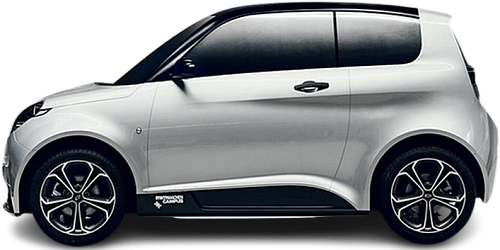Global EV Comparison: e.Go Life 60 vs Renault Twingo Z.E. Base
Struggling to Decide? Let AI Help!
Your AI Summary Is Ready!
General Info
Since both vehicles have been discontinued, they are now only available on the used car market. You can get the e.Go Life 60 (2019-2022) for as low as €8750, while the Renault Twingo Z.E. (2020-2024) begins at €9950.
The two vehicles share the same body style: Hatchback.
| Property | e.Go Life 60 | Renault Twingo Z.E. Base |
|---|---|---|
| Years of Production | 2019-2022 | 2020-2024 |
| Current Status | Discontinued | Discontinued |
| Country of Manufacture | Germany | Slovenia |
| Body Style | Hatchback | Hatchback |
| Market Availability | EU | EU |
| Price Europe (Used) | €8750 | €9950 |
| GCC Score | 4.1 | 5 |
Range and Efficiency
Even though the e.Go Life 60 (2019-2022) has a larger battery, the Renault Twingo Z.E. (2020-2024) higher energy efficiency results in a longer real-world driving range.
| Property | e.Go Life 60 | Renault Twingo Z.E. Base |
|---|---|---|
| Range (WLTP) | 145 km | 190 km |
| Range (GCC) | 123 km | 162 km |
| Battery Capacity (Nominal) | 23.5 kWh | 23 kWh |
| Battery Capacity (Usable) | 22.3 kWh | 21.3 kWh |
| Efficiency per 100 km | 18.1 kWh/100 km | 13.1 kWh/100 km |
| Efficiency per kWh | 5.52 km/kWh | 7.61 km/kWh |
| Range and Efficiency Score | 4.4 | 6.1 |
Charging
Both vehicles utilize a standard 400-volt architecture.
Neither model supports DC fast charging.
The Renault Twingo Z.E. (2020-2024) features a more powerful on-board charger, supporting a maximum AC charging power of 22 kW, whereas the e.Go Life 60 (2019-2022) is limited to 3.7 kW.
| Property | e.Go Life 60 | Renault Twingo Z.E. Base |
|---|---|---|
| Max Charging Power (AC) | 3.7 kW | 22 kW |
| Max Charging Power (DC) | - Max Charging Power (DC) | - Max Charging Power (DC) |
| Architecture | 400 V | 400 V |
| Charge Port | Type 2 (Mennekes) | Type 2 (Mennekes) |
| Charging Score | 2.5 | 5.7 |
Performance
Both vehicles are rear-wheel drive.
Both cars offer the same motor power, but the e.Go Life 60 (2019-2022) achieves a faster 0-100 km/h time.
| Property | e.Go Life 60 | Renault Twingo Z.E. Base |
|---|---|---|
| Drive Type | RWD | RWD |
| Motor Type | PMSM | PMSM |
| Motor Power (kW) | 60 kW | 60 kW |
| Motor Power (hp) | 80 hp | 80 hp |
| Motor Torque | - Motor Torque | 160 Nm |
| 0-100 km/h | 10 s | 12.6 s |
| Top Speed | 142 km/h | 135 km/h |
| Performance Score | 2.6 | 1.7 |
Dimensions
The e.Go Life 60 (2019-2022) is wider and taller, but the Renault Twingo Z.E. (2020-2024) is longer.
The Renault Twingo Z.E. (2020-2024) boasts a more extended wheelbase.
| Property | e.Go Life 60 | Renault Twingo Z.E. Base |
|---|---|---|
| Length | 3345 mm | 3615 mm |
| Width (with Mirrors) | - Width (with Mirrors) | 1875 mm |
| Width (w/o Mirrors) | 1747 mm | 1646 mm |
| Height | 1588 mm | 1541 mm |
| Wheelbase | 2200 mm | 2492 mm |
Cargo and Towing
The Renault Twingo Z.E. (2020-2024) provides more cargo capacity, featuring both a larger trunk and more space with the rear seats folded.
Neither car is equipped with a frunk (front trunk).
Neither vehicle is officially rated for towing in in the EU.
| Property | e.Go Life 60 | Renault Twingo Z.E. Base |
|---|---|---|
| Number of Seats | 4 | 4 |
| Curb Weight | 1210 kg | 1112 kg |
| Cargo Volume (Trunk) | 140 l | 188 l |
| Cargo Volume (Max) | 640 l | 980 l |
| Cargo Volume (Frunk) | - Cargo Volume (Frunk) | - Cargo Volume (Frunk) |
| Towing Capacity | - Towing Capacity | - Towing Capacity |
| Cargo and Towing Score | 4.1 | 3.9 |




